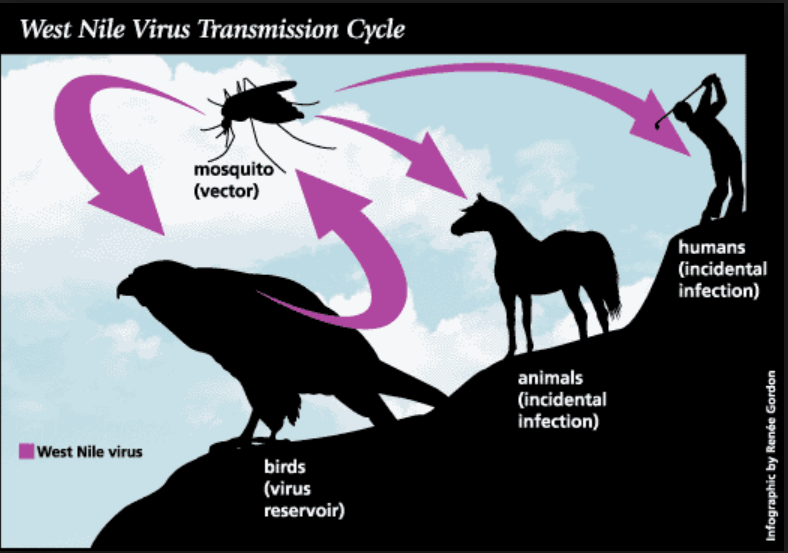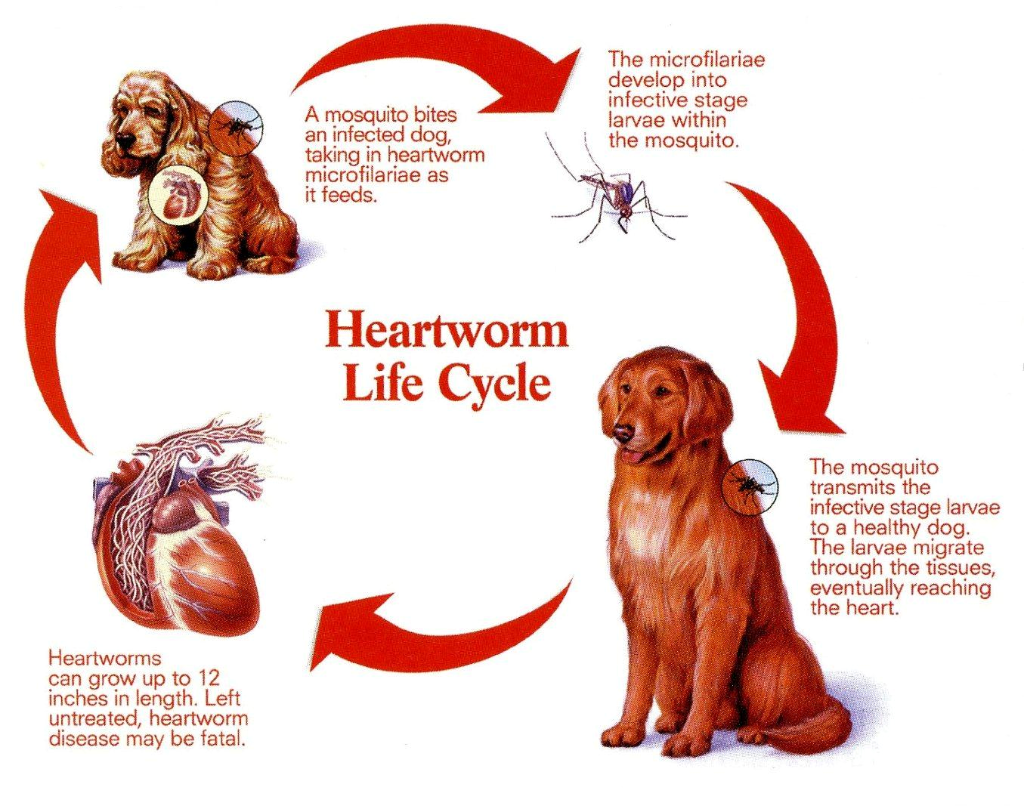Mosquito Control
The Five D’s of Protection from Mosquitoes
Drain – Many containers mosquito problems in your neighborhood are likely to come from water that you, the resident, can help to eliminate. All mosquitoes need water in which to breed. Be sure to drain any standing water around your house.
Dress – Wear light colored, loose fitting clothing. Many of the 176 mosquito species are attracted to dark clothing and some can bite through tight-fitting clothes. When practical, wear long sleeves and pants.
Dusk to Dawn – Avoid mosquito mealtimes— early evening to early morning hours. If at all possible, avoid outdoor activities during these times.
Defend – Choose a mosquito repellent that has been registered by the Environmental Protection Agency, such as DEET, Picaridin, or oil of lemon eucalyptus. Registered products have been reviewed, approved, and pose minimal risk for human safety when used according to label directions.
Mosquito Life Cycle

Male and female mosquitoes can gain energy by drinking nectar from plants but the female mosquito requires a blood meal in order to gain the nutrients needed to lay viable eggs. Therefor only the female mosquito bites humans and other animals. Female mosquitoes are known to bite many types of animals including snakes, alligators, birds, frogs, and all types of mammals. One female can lay eggs many times during her life and requires a blood meal before each of these occasions. This fact plays a key role in how dangerous mosquitoes can be in our environment. The mosquito may pick up an illness from one animal during a blood meal and then later transmit that illness on to another animal during her next feeding.
There are over 30 species of mosquitoes found in our district. These different species tend to feed on different animals; some primarily feed on birds, while others may feed on humans, which can be a problem. There are some very serious viruses found in our local population of birds in this part of the country. Our surveillance records show that two viruses that can cause serious harm to humans are present in our district year after year. Below is our report from 2012 showing the prevalence of mosquito born illness in our county. You can read more about this on this website on the operations page under surveillance.
West Nile Virus and Eastern Equine Encephalitis
Each year during the months of April to December, we detect West Nile Virus (WNV) among our sentinel chicken flock. We also find Eastern Equine Encephalitis (EEE) during the months of June through December.
Both of these virus’ cycles start within the bird population and then are transmitted to humans and other animals, which may or may not show signs of illness. In the WNV diagram, notice the mosquito primarily feeds on birds but on occasion will feed on other animals, including horses and humans. Vaccine is available for horses but not for humans.
Many of us are pet owners. If you own a dog you are probably aware of the expense related to keeping your dog from contracting dog heartworm. Heartworms are transmitted by the female mosquito, shown in this diagram of the heartworm life cycle. Please click on the image to get a clearer view.


Learn How to Reduce Mosquitos at Home
Repellents make humans unattractive to a mosquito so that it will avoid areas of the body that have been treated with the product. Learn more about mosquito repellents at AMCA.
Beekeeping and Protecting Pollinators
South Walton County Mosquito Control District has access to the list of all registered beekeepers in South Walton County.
Find out how to reduce bee exposure to mosquito repellents.
